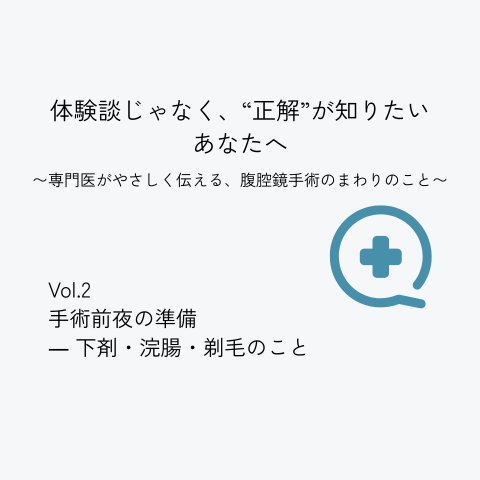
体験談じゃなく、”正解”を知りたいあなたへ_第2回...
2026/01/31

2025/03/07
If you’ve had unprotected sex or experienced contraceptive failure, the morning-after pill (emergency contraception) can help prevent pregnancy. However, in Japan, access to the morning-after pill is more restricted than in some other countries, and many people have questions like, “Where can I get it?” or “How soon do I need to take it?”
In this article, we answer common questions about the morning-after pill in Japan, including its availability, effectiveness, and what to expect when visiting a clinic.
No. Unlike in some countries where it’s available over the counter, the morning-after pill requires a prescription from a doctor in Japan. You will need to visit a gynecology clinic or hospital to get it.
The sooner you take it, the more effective it is:
If more than 72 hours (3 days) have passed, the pill may not work, and you should consult a doctor about other options.
The price typically ranges from ¥7,000 to ¥15,000, depending on the clinic and the type of pill prescribed. Since it is not covered by health insurance, the full cost must be paid out of pocket.
No, you cannot purchase it online or from pharmacies without a doctor’s consultation. Some online medical consultation services may be able to prescribe it, but availability is limited.
No, there are no legal age restrictions, and minors can obtain it without parental consent. However, some clinics may require a parent’s presence for younger patients, so it’s best to check with the clinic in advance.
Levonorgestrel is the most common one in Japan. Ulipristal acetate is not officially approved in Japan. Some clinics import the pills individually from overseas. Given this situation, the availability of is ulipristal acetate limited in Japan.
Some clinics may offer the Yuzpe method, which uses a combination of estragen and progesteron (a commonly used pill in Japan is called Pranoval). A second dose is required after 12 hours. While the Yuzpe method is less effective and tends to cause more side effects than other oral methods, its wide availability and low cost can make it a viable option.
Levonorgestrel, a synthetic hormone, prevents ovulation. If ovulation has already occurred, the pill may not be effective.
No. The morning-after pill prevents pregnancy but does not terminate an existing one. If you suspect you are already pregnant, consult a doctor for other options.
If you vomit within 2 hours of taking the pill, you may need to take another dose. Contact your doctor as soon as possible.
Yes, but frequent use is not recommended because:
For long-term contraception, consider birth control pills, IUDs, or other reliable methods.
Common side effects include:
Based on my professional experience as a gynecologist, the likelihood of these symptoms occurring with levonorgestrel is quite low, and even if they do, they are typically mild and resolve within a few days.
Yes, your period may come a few days earlier or later than usual. If your period is more than a week late, take a pregnancy test.
No, there is no evidence that emergency contraception affects long-term fertility. However, if you frequently need emergency contraception, consider switching to a regular birth control method.
No. Unlike in some countries, Japanese pharmacies do not sell the morning-after pill without a prescription. You must visit a clinic or hospital.
If you cannot find a clinic nearby, try:
Yes, foreign residents and visitors in Japan can obtain a prescription at clinics and hospitals. Some clinics, including ours, Ashiya Women’s Clinic, offer consultations in English and Chinese.
No. Emergency contraception only prevents pregnancy and does not protect against sexually transmitted diseases (STDs). If you’re concerned about STDs, consider getting tested.
If you still miss your period or suspect pregnancy, take a pregnancy test and consult a doctor as soon as possible.
The morning-after pill prevents pregnancy, while the abortion pill (mifepristone) ends an existing pregnancy. The abortion pill is not widely available in Japan, and abortion procedures are typically surgical.
Yes, but very limited in Japan. Ella is a commercial name of ulipristal acetate. It can be used up to 120 hours after sexual intercourse. Commercial names include ella, ellaOne, and Fibristal. They are not officially approved in Japan, therefore, some clinics import them individually from overseas. Given this situation, the availability is limited in Japan.
At Ashiya Women’s Clinic, we provide:
✅ Same-day prescriptions of levonorgestrel for emergency contraception
✅ English & Chinese-speaking doctors
✅ Confidential & professional care
📍 Located a 3-minute walk from JR Ashiya Station
Ashiya Station is located between Osaka Station and Sannomiya Station (one of the major stations in Kobe City). All JR trains on this route make a stop there. If you are in Ashiya/Kobe/Nishinomiya/Osaka, reaching Ashiya Women’s Clinic should be easy.
Schedule your appointment with us today, or feel free to visit during our office hours. Emergency contraception is time-sensitive, and we will respond as promptly as possible.
Ashiya Women’s Clinic
🚉 3-min walk from JR Ashiya Station
📍 4th floor, 5-19 Oharacho, Ashiya, Hyogo, Japan Google Map
🕒 Mon, Tue, Thur, Fri:10:00〜13:00 / 15:00〜19:00
Sat:10:00〜17:00(Reservations only after 13:00)
Closed on Wed, Sun, and National Holidays
💻 Online booking available – no phone reservations.
🏠Official Website